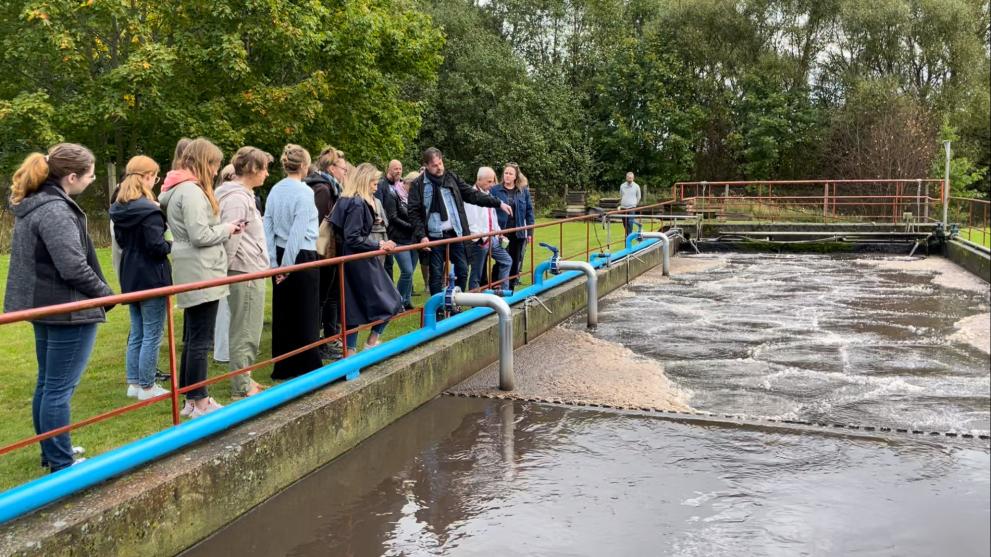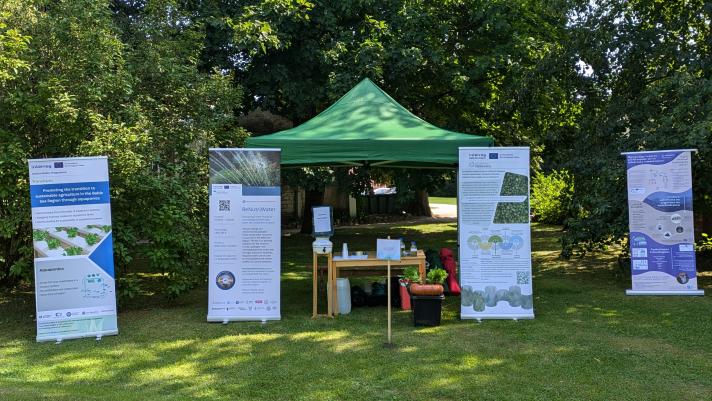
Freshwater is a vital but increasingly scarce resource, and its conservation is more critical than ever. Climate change, pollution, and rising water demand make sustainable water management a priority. The ReNutriWater project is leading the way in addressing this challenge by promoting the safe and efficient reuse of water and nutrients. An important aspect is to show that water reuse can be an attractive economic activity and innovation driver.
Funded by the EU’s Interreg Baltic Sea Region Programme, ReNutriWater focuses on closing local water circuits by reclaiming wastewater and reusing it for non-potable purposes. This approach benefits local authorities, private entities, and the environment by reducing freshwater consumption, saving energy, and minimizing pollution. By implementing innovative water treatment methods, the project aims to develop practical solutions that make water reuse both safe and economically viable.
ReNutriWater works in close cooperation with the EU Strategy for the Baltic Sea Region Policy Area Nutri and related projects, ensuring that its efforts align with broader regional strategies to reduce nutrient pollution and promote sustainable water use across the Baltic Sea region.
Tackling the Challenges of Reclaimed Water
All Baltic Sea region countries are responsible for mitigating eutrophication of the Baltic Sea. This can be achieved by reducing fertilizer use and ensuring proper wastewater treatment. If nutrients are not discharged into water, they can replace or supplement fertilization. While adequate drinking water preparation techniques exist in many places, variations in technology, implementation, and needs mean that international knowledge transfer is crucial for increasing capacity in the region. International cooperation can provide knowledge exchange, pilot different solutions, and offer guidelines on how to improve the sustainability of local, regional, and national water management.
Despite its advantages, water reuse comes with challenges. Ensuring the quality and safety of reclaimed water is essential to prevent environmental and health risks. One of the key objectives of ReNutriWater is to develop safe water recovery solutions, free of pathogens and micropollutants, while preserving valuable nutrients.
Nutrient recovery plays a crucial role. By carefully adjusting the composition of reclaimed water, it can be safely used for irrigation, street cleaning, car washes, and recreational areas, reducing the need for artificial fertilizers and promoting a circular economy in water management.
Innovative Pilot Projects
ReNutriWater operates through three pilot projects aimed at testing different aspects of reclaimed water treatment and usage. These pilots are being carried out by partners in Poland, Finland, Latvia, Lithuania, and Denmark. In Poland, the pilot includes a test of the availability of producing reclaimed water in capital city area and a business case, addressing the need for water reuse in recreational areas, such as irrigation while simultaneously protecting lakes. The Samsø island in Denmark explores local solutions in areas with scarce groundwater resources. In Latvia, the pilot takes place in a seaside tourist city, highlighting the relevance of reclaimed water in tourism-driven economies. Finland’s pilot cases examine applications in harsh environments and explore contrasting water management drivers. By collecting and analyzing experiences from these diverse pilots, ReNutriWater will provide extensive guidance to stakeholders with varied challenges, regardless of location.
Knowledge and Practical Tools
ReNutriWater is committed to sharing knowledge and best practices to accelerate the adoption of water reuse solutions. The deliverables include:
The Handbook on Water Reuse is a comprehensive resource designed to raise awareness and provide actionable insights on water reuse. Based on extensive consultations and pilot project results, it serves as a guide for municipalities, industries, and researchers interested in implementing sustainable water management practices.
The Safe Water Mentoring Programme offers expert guidance to organizations looking to implement water reuse strategies. It provides participants with the opportunity to develop actionable plans for increasing the use of reclaimed water in their organizations, supported by mentoring, hands-on workshops, and a collaborative professional network.
The WaterSafe IT Tool is being developed to assist stakeholders in evaluating and implementing water reuse technologies. This digital resource will provide guidance on safe water recovery practices, helping users navigate regulatory requirements and technical considerations.
A Survey Analysis on Water Awareness is being conducted to measure and expand public and institutional understanding of water reuse benefits and challenges. The findings will contribute to shaping better policies and engagement strategies.
ReNutriWater actively transfers knowledge by organizing local events and by participating in international conferences focusing on water issues. These efforts ensure that project findings and innovations reach relevant stakeholders, fostering collaboration and encouraging the adoption of water reuse practices at multiple levels.
A Vision for the Future
ReNutriWater is more than just a research initiative—it is a part of a movement towards smarter, more sustainable water use. By demonstrating the economic and environmental benefits of reclaimed water, the project supports policymaking and encourages cities to integrate water reuse into their urban planning.
This initiative aligns with the EU’s water agenda, which aims to secure clean and sustainable water resources for all, as outlined in the European Commission’s recent water policy efforts. By contributing to these broader European goals, ReNutriWater plays a small but not insignificant role in advancing responsible water use, protecting ecosystems, and strengthening resilience to climate change.
#WaterWiseEU campaign
This story has been submitted by a partner of the #WaterWiseEU campaign. The EU-wide campaign focuses on water resilience, aiming to change the way we see, use and value water. Find out more about the campaign and how you can get involved.
Details
- Publication date
- 10 February 2025
- Author
- Directorate-General for Environment


